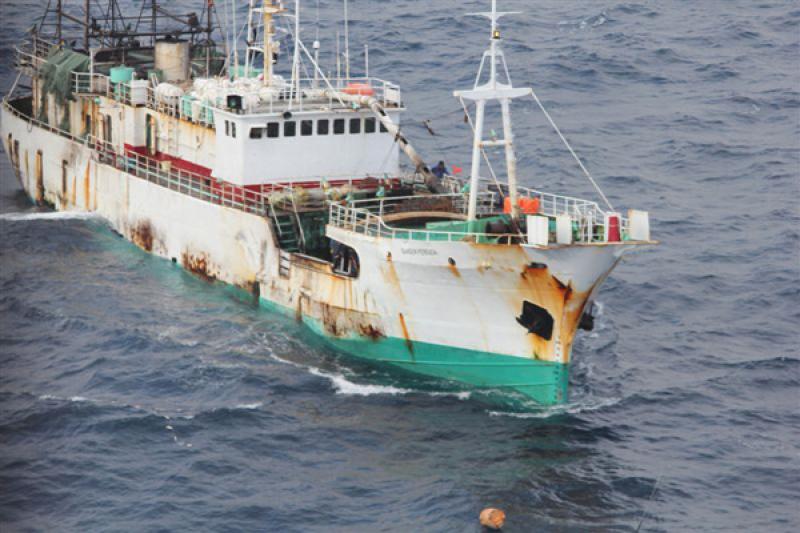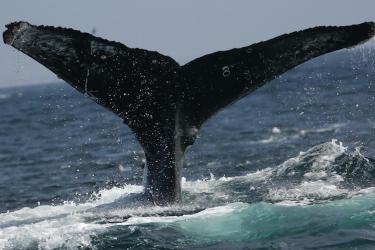In its 2021 Report to Congress on Improving International Fisheries Management, NOAA Fisheries identified 31 nations and entities with vessels engaged in illegal, unreported, or unregulated fishing activities or bycatch of protected species on the high seas. The report also negatively certified Mexico for continued IUU fishing activities, subjecting Mexican fishing vessels to restrictions on U.S. port access and potential import restrictions on fish and fish products.
IUU fishing undermines international efforts to sustainably manage and rebuild fisheries. It creates unfair market competition for fishermen who adhere to strict conservation measures like those in the United States. IUU fishing can also devastate fish populations and their productive marine habitats, threatening food security and economic stability worldwide. Bycatch, or the catch of non-target fish, marine mammals, sea turtles, and seabirds that become hooked or entangled in fishing gear, can negatively affect the conservation of ocean ecosystems, including protected marine life.
Some nations do not have regulatory programs to reduce or mitigate bycatch of protected species in their fisheries comparable in effectiveness to the United States. This threatens the sustainability of those fisheries or other transboundary resources shared with the United States.
Combating IUU fishing and other unsustainable fishing practices, such as bycatch of protected marine life, is a critical component of our role as a leader in sustainable fishing practices. The biennial reports to Congress on improving international fisheries management, and the underlying identification and consultation process, is one of several tools that NOAA Fisheries deploys to deter and prevent IUU fishing and support effective international marine conservation.
Key Findings of the 2021 Report
Nations and entities identified for having vessels engaged in IUU fishing activities during 2018–2020:
- China
- Costa Rica
- Guyana
- Mexico
- Russian Federation
- Senegal
- Taiwan
Nations and entities identified for lacking a regulatory program comparable in effectiveness to the United States to reduce the bycatch of protected marine life in their fishing operations:
- Algeria
- Barbados
- China
- Côte d'Ivoire
- Croatia
- Cyprus
- Egypt
- European Union
- France
- Greece
- Grenada
- Guyana
- Italy
- Japan
- Republic of Korea
- Malta
- Mauritania
- Mexico
- Morocco
- Namibia
- Portugal
- Saint Vincent and the Grenadines
- Senegal
- South Africa
- Spain
- Taiwan
- Trinidad and Tobago
- Tunisia
- Turkey
All but one of the nations and entities are identified for lacking a regulatory program comparable in effectiveness to the United States to reduce bycatch of sea turtles in tuna longline fisheries in the Atlantic Ocean. This is where U.S. vessels operate under strict regulations to protect marine life. Mexico is being identified in the 2021 report for bycatch in coastal fisheries of turtles that are shared with the United States without having a regulatory program comparable in effectiveness to the United States. Some nations or entities were identified for both IUU fishing and bycatch activities.
Once identified in the biennial report, NOAA Fisheries enters into a two-year consultation period with each of the nations and entities to press for corrective action to address these activities and improve their fisheries management practices. A positive certification is issued if the nation has provided evidence of actions that address the activities for which it was identified. The next certification determinations will occur in 2023.
Certification
The 2021 report also announced certification determinations for nations identified for IUU fishing activities in the 2019 report. Mexico was negatively certified for failing to curb the flow of small vessels fishing illegally in the U.S. waters of the Gulf of Mexico. Fishing vessels of a negatively certified nation or entity are subject to denial of entry into U.S. ports and potential import restrictions of certain fish and fish products.
In contrast, Ecuador and the Republic of Korea received positive certification determinations for taking actions to remedy the IUU fishing activities for which they were identified in 2019.
Shark Catch
No nations or entities were identified for shark catch on the high seas. However, NOAA Fisheries identified China, Guyana, Senegal, and Taiwan under the IUU fishing provision for violations of regional fisheries management organization shark conservation and data reporting measures, among evidence of other IUU fishing activities.
The 2021 Biennial Report to Congress is an important part of NOAA Fisheries work to improve global fisheries management, combat IUU fishing, support the effective management of protected species and shark catch on the high seas, and ensure a fair market for the U.S. fishing industry.


